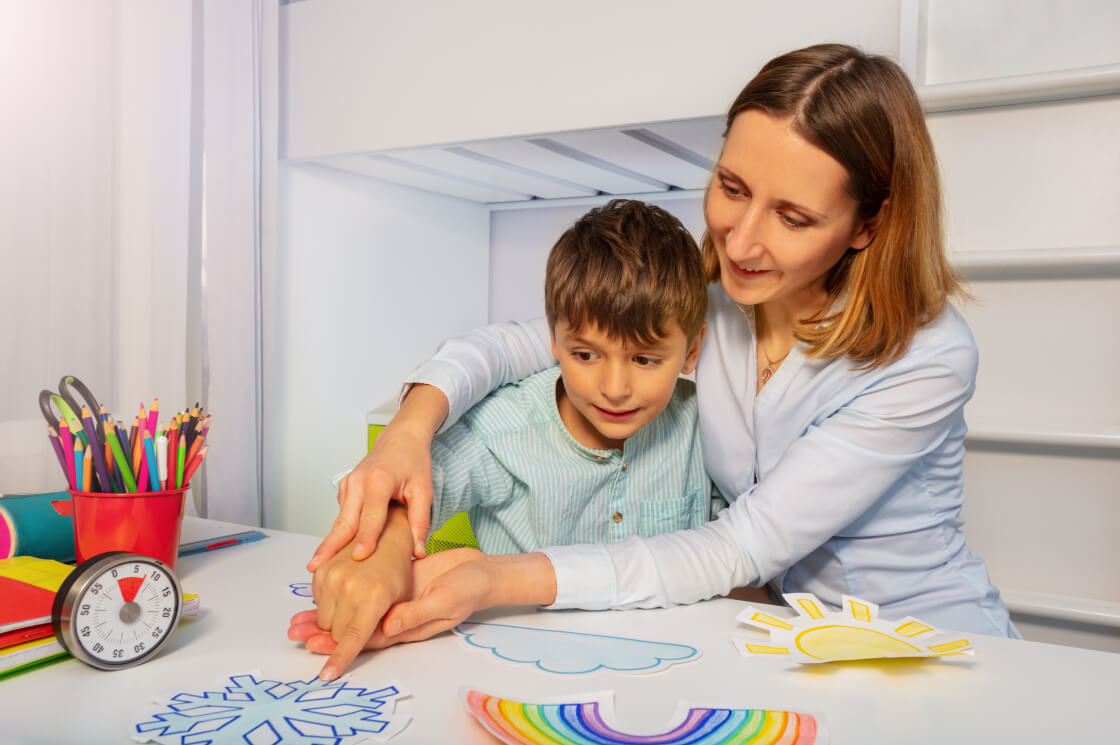
What is Autism?
A recent study conducted by the CDC (Center for Disease Control and Prevention) revealed that 1 in 68 children in the United States is diagnosed with Autism. We’ve all heard of autism, but what exactly is it?

A recent study conducted by the CDC (Center for Disease Control and Prevention) revealed that 1 in 68 children in the United States is diagnosed with Autism. We’ve all heard of autism, but what exactly is it?
Autism is defined as a neurodevelopment disorder that impacts how an individual communicates and interacts with other people and the manner in which they perceive their surroundings. Parents will usually notice visible signs of the condition during the first two or three years of their child’s life. When a child is diagnosed with autism, acting early and choosing the ideal autism therapy technique is crucial.
An autistic child’s capacity to learn will differ from other children. Sometimes an autistic child will be able to pick up and digest knowledge quicker than the rest, such as reading long words but won’t remember them later on. They may also choose a challenging route in learning before grasping the easy way. Autistic behavior consulting and ABA therapy techniques will help in determining the best way of educating an autistic child and harnessing their unique way of processing knowledge and information.
Physical tics – movements that are normally jerky in nature – are typical symptoms in children and people with autism. Physical symptoms can also vary from one autistic person to the next; some can control them pretty well while others simply cannot. Most autistic children also have obsessions that are hard to stop. Behavioral therapy for autism will help greatly in controlling physical tics and obsessions in autistic children. This will help channel the child’s obsession into another medium such as playing the piano or painting.
Many people believe that autistic people are incapable of feeling. Nothing could be further from the truth! Just like the rest of us, they also feel love, happiness, anguish, and fear. They may express feelings differently from us, but they certainly feel the same way all of us do. If you have someone in your family that is autistic, always remember that the person is just like you in more ways than you can imagine.
Charles Darwin, Isaac Newton, and Thomas Jefferson are just a few names of autistic people in history who have been instrumental in shaping the world that we know today. While not all children with autism will become the next Mozart or Nikola Tesla, many people with ASD (Autism Spectrum Disorder) possess incredible IQs and unique talents. In fact, Bill Gates and Steve Jobs, the two most influential people in the world of computer technology, are autistic.
So if you have a child who is autistic, do not think that they cannot be successful. All you need is the proper autism therapy techniques to unlock your child’s unique potential and capability.
In the United States, autism affects about 1 in 68 children, but they are not the only ones who are directly affected by this disorder. Friends and family of children who are not properly diagnosed or do not receive the proper treatment will struggle to understand and care for the child in the appropriate way. Frustrations stem from not being able to communicate, which is why it is so important to learn a different way of viewing the world. The chance is high that you either know someone who has been diagnosed with autism or know someone who has been affected by the condition.
In general, a formal diagnosis is made early on. Children can be diagnosed with autism as early as 2 years of age. In some cases, children can be diagnosed into their teenage years. But as awareness, testing, and information becomes more widely available people can be diagnosed at any point in their lives due to symptoms displaying differently due to autism being a spectrum disorder.
Without proper treatment, the condition can worsen in terms of the gap between a child’s mental, cognitive and physical development. The child has the best chance of growing and learning intuitively when they are diagnosed and undergo continuous treatment as they age. This is why ABC Therapy Clinics highly recommends taking preventative measures like our free autism screenings.
Whether your child has just received an autism spectrum diagnosis, had one for years, or hasn’t even undergone an autism screening yet, ABC Therapy wants to assure you that you are not alone. While autism will make your child’s life different from others, different doesn’t mean less by any means. We are here to support you and welcome you to the ABC Therapy Clinics’ community and family.
At ABC, we are here to help both clients – and their families – every step of the way. Getting started has never been easier, even if you are new to the process. Ready to provide your child with the support they need?

© 2024 Applied Behavioral Consulting DBA ABC Therapy Clinics. Privacy Policy | Terms of Service | Disclaimer